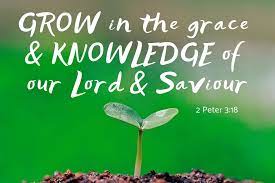What, why, when, how… to surrender?
It is not easy for us to surrender. It is, therefore, important to understand how surrendering operates in our daily lives. This is where we will begin today.
As we stated earlier in this study, to surrender means to give up power, control, or possession of a thing. For believers, that thing is us! Spiritual surrender is the relinquishing of our will to the will of God. Each day we are tempted by our flesh, the world, and Satan to give up power, control, or possession of our life (1 John 2:15-17). That’s why it is important to be alert and watchful to decisions that lead us to death or to obedience (Rom. 6:16).
Why surrender?
This question, for me, was a game changer! To truly understand “why” surrender, it is important to understand what it means to be “filled by the Spirit”. While the definition of “filling” or “indwelling” of the Holy Spirit may vary based on one’s denomination, I will share the most common understanding by theologians.
The filling of the Spirit refers to a continual process of spiritual growth and maturity, where believers are constantly controlled by the Holy Spirit in their mind, emotions, and will. It is not a feeling or emotional experience, but rather the yielding of one’s life to the Lord. The filling of the Spirit empowers us to live the surrendered life.
When to surrender?
At the moment of salvation, we surrender to the Holy Spirit who brings us to repentance (John 16:8). The Holy Spirit regenerates our spirit and we become new creatures in Christ (2 Cor. 5:16-17). It is at that time that the Holy Spirit takes permanent residence in our life (1 Cor. 3:16).
We continue this process of surrender so that we will “act more like Jesus” or “be conformed” to His image (Rom. 8:29). This is only possible through our obedience to the Holy Spirit.
How to surrender?
As we stated earlier, the Holy Spirit’s filling is the yielding of our life to the Lord. Key to this definition is the word, yielding. Yielding implies an act of cooperation by us as recipients of the Spirit. Unlike our initial salvation, it is a continual process in our spiritual growth. This is the daily work of surrender (2 Cor. 3:18).
I offer three “R’s of Surrender” to help us practice this critical element in our Christian walk.
-
- Repentance. Continually examine our life to identify those things that act as idols and influences. Be brutal in discarding those things that hinder our absolute surrender. (2 Cor. 13:5-6)
- Realization. Depend wholly on the directions and leanings of the Holy Spirit. Surrender cannot be accomplished by our “good works” or best efforts. It is the work of God. (Luke 18:27)
- Relationship. Understand the will of God by spending time with Him. Prayer, meditation, and His Word are direct paths to surrender. Practice His presence throughout the day. (Psa. 42:1-2)
God blesses when we surrender
To live in the fullness God has planned for our life, it is important that we surrender to God. This means we must give up those things that hinder the Holy Spirit’s work in our life. This includes not only personal sin, but our self-will, self-confidence, and self-effort.
I close with these insightful words from Andrew Murray as to the blessings associated with our surrender to God.
I say again, God will bless you. You have been praying for blessing. But do remember, there must be absolute surrender. At every tea table you see it. Why is tea poured into that cup? Because it is empty and given up for the tea. But put ink, or vinegar, or wine into it, and will they pour the tea into the vessel? And can God fill you, can God bless you if you are not absolutely surrendered to Him? He cannot.[1]
To be filled, we must empty ourselves. We must surrender.
[1] Absolute Surrender, Andrew Murray









